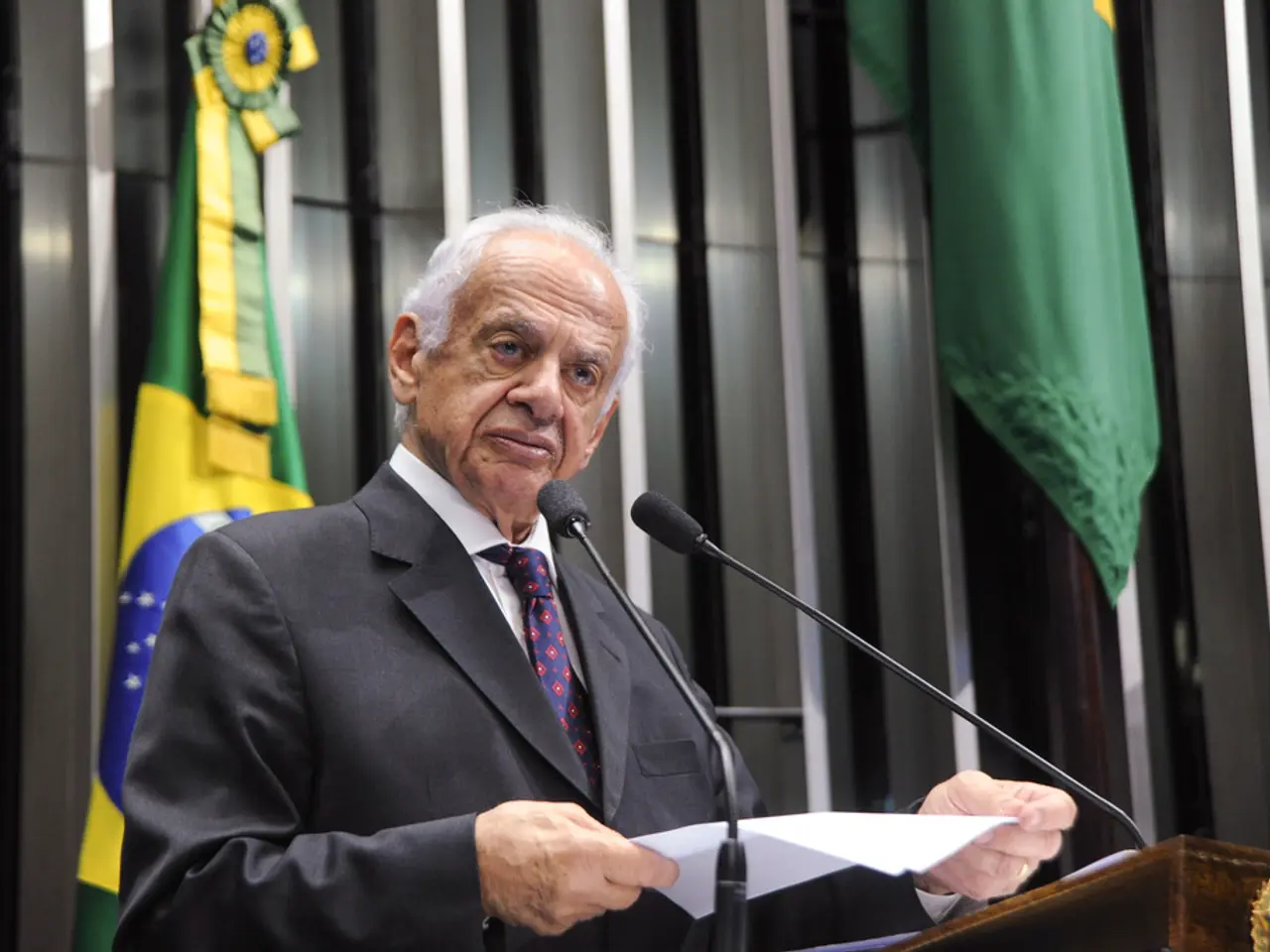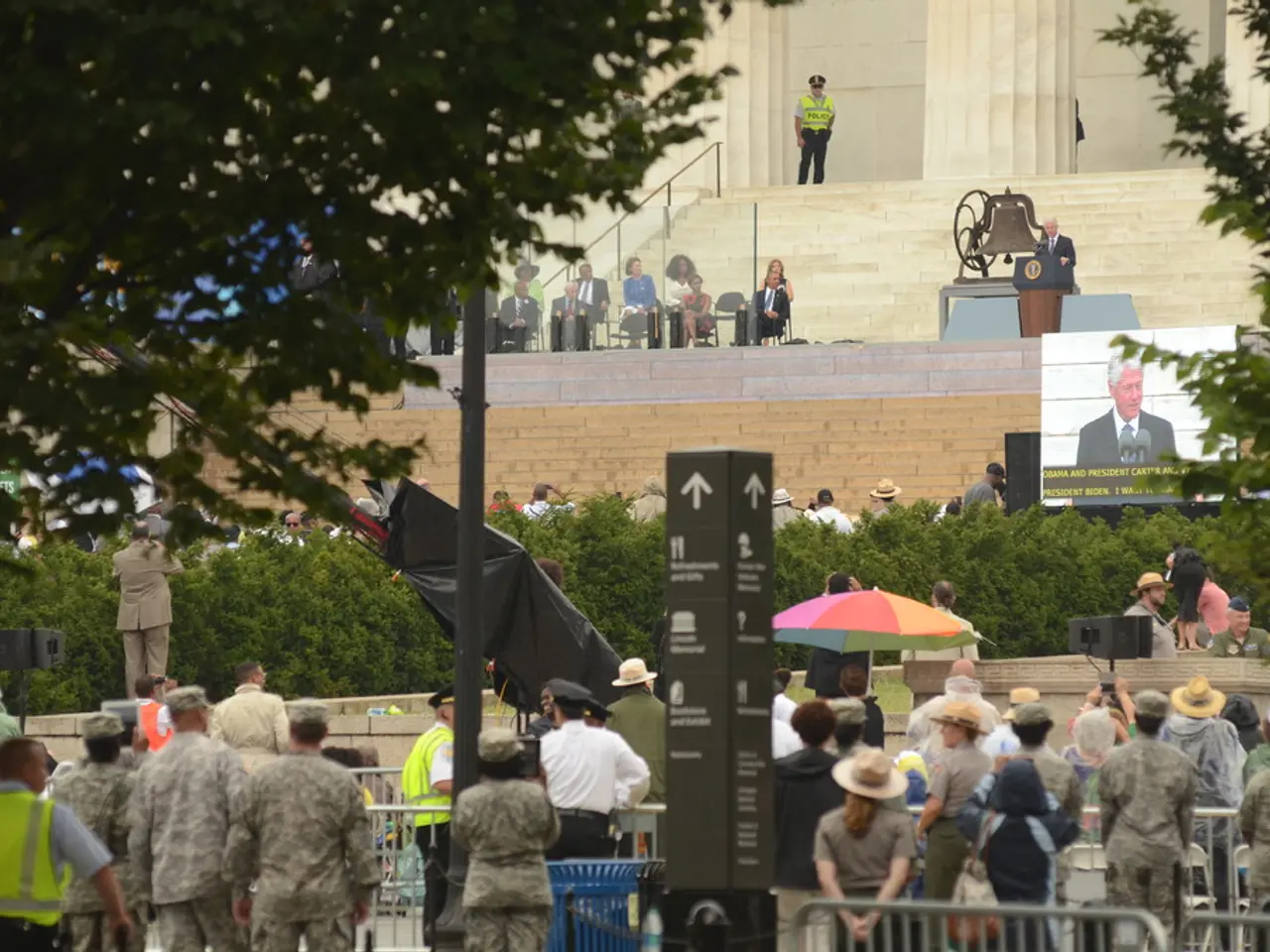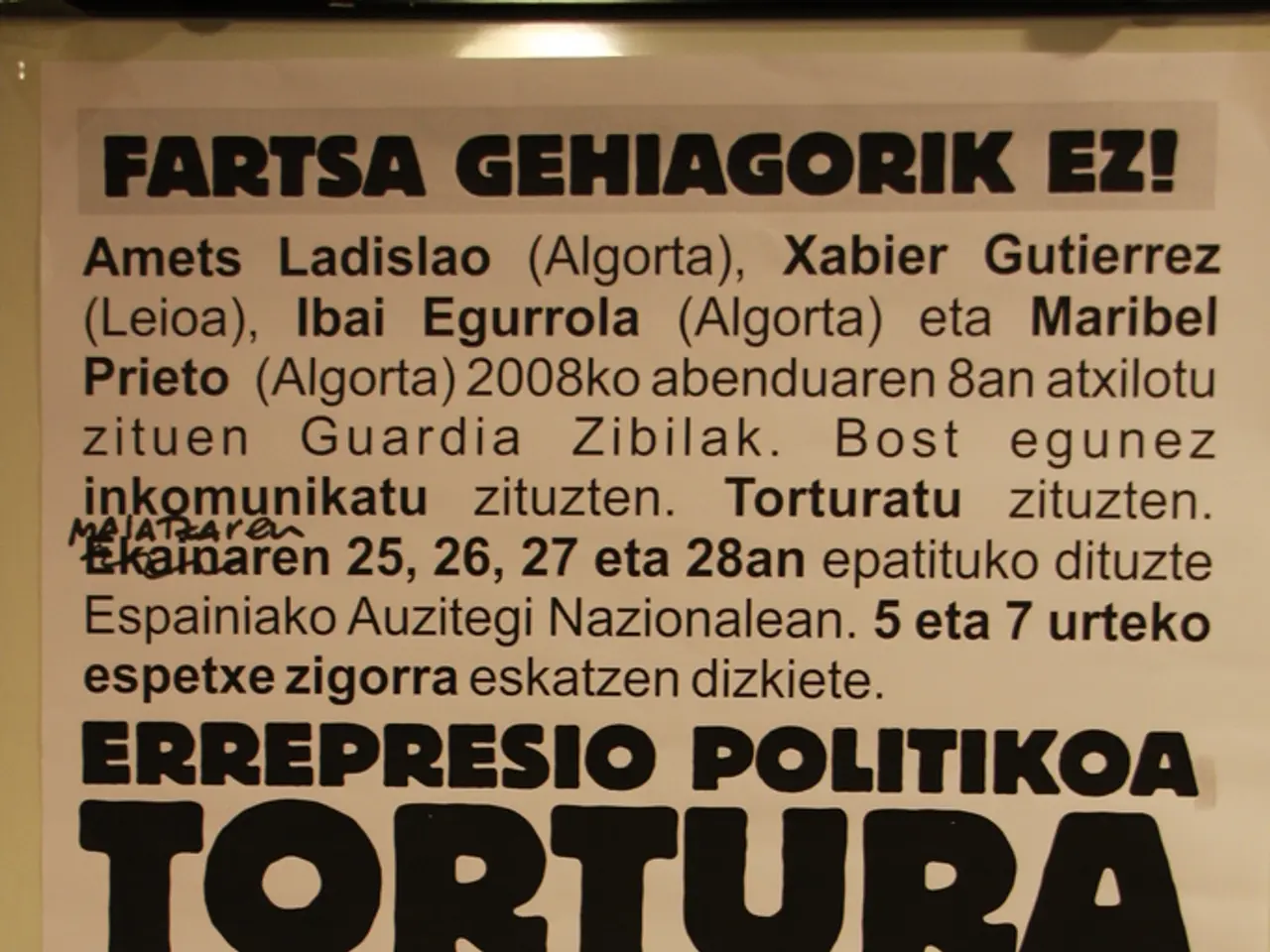Israeli Defense Force Commander Disagrees with Netanyahu's Proposed Expansion of Control in Gaza Strip
The Israeli cabinet has taken a controversial step by approving a fresh military offensive aimed at gaining full control of Gaza City. This plan, which involves the displacement of approximately 800,000 civilians by early October 2025, has been met with widespread international condemnation [1].
The proposed operation, which includes surrounding the city for three months and further operations to clear armed groups from central Gaza over additional months, aims at "defeating Hamas" and establishing an alternative civilian administration not affiliated with Hamas or the Palestinian Authority [1]. However, the move has been criticised as a violation of international law, harmful to the prospects for peace, and potentially causing further destabilization in the region [2].
France, in particular, has strongly opposed the plan. It views the proposed displacement as a violation of international law and harmful to the prospects for peace and regional stability [2]. France calls for the release of hostages by Hamas and urges ceasefire efforts and disarmament of Hamas rather than further military escalation [2]. It supports a two-State solution and international efforts to deploy a temporary stabilization mission to secure peace for both Israelis and Palestinians [2].
UN officials have expressed similar concerns, warning that the Israeli plan risks a dangerous escalation, causing further displacement, destruction, and destabilization of the region [1]. They emphasize the need to protect civilians and facilitate humanitarian aid in Gaza, and the International Court of Justice's provisional measures demanding humanitarian access and protection remain in effect [1].
The Israeli military, which accuses Hamas of operating amongst civilians, has at times avoided areas where hostages were held. However, the latest ceasefire talks in Qatar broke down last month, and the military is under intense international pressure to reach a ceasefire in Gaza [3].
The current conflict has taken a heavy toll. In the past 24 hours, at least 135 people have been killed in Gaza as a result of Israeli air strikes, according to the Gaza health ministry [4]. Since the beginning of the conflict, more than 61,000 people have died, mostly civilians, according to the Gaza health ministry [5]. Nearly 200 Palestinians have died of starvation in Gaza since the war began, about half of them children [6].
The Israeli military chief, Eyal Zamir, has expressed concern about Benjamin Netanyahu's plans to seize more areas of Gaza [7]. Hamas insists any deal must lead to a permanent end to the war, while Israel accuses the group of lacking sincerity about giving up power afterward and must be defeated [8]. The Israeli military has repeatedly opposed imposing military rule, annexing the territory, and rebuilding Jewish settlements in Gaza [9].
As of now, there are 50 hostages still being held in Gaza, with at least 20 believed to be alive [10]. The videos of emaciated hostages released by Hamas and Palestinian Islamic Jihad last week triggered international condemnation [11]. The international community continues to push for diplomatic solutions aimed at a durable two-State outcome and the protection of civilians in Gaza.
References:
- Haaretz
- France 24
- Al Jazeera
- Gaza Health Ministry
- Gaza Health Ministry
- Al Jazeera
- Haaretz
- Haaretz
- Haaretz
- Haaretz
- Haaretz
The Israeli military's offensive in Gaza City, involving displacement of civilians, has been criticized as a violation of international law and a potential threat to peace, as stated by France [2]. Furthermore, the health sector in Gaza has suffered greatly during the conflict, with over 61,000 deaths, mostly civilians, since its commencement [5].







